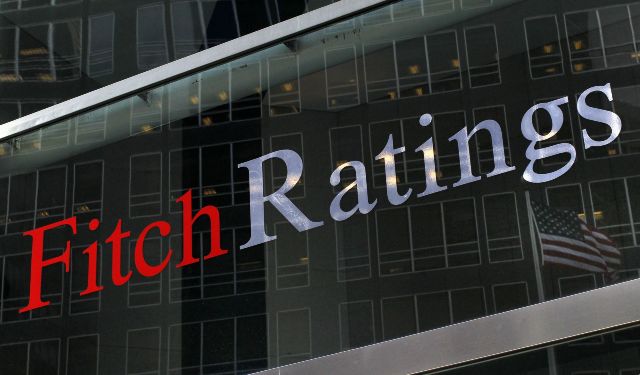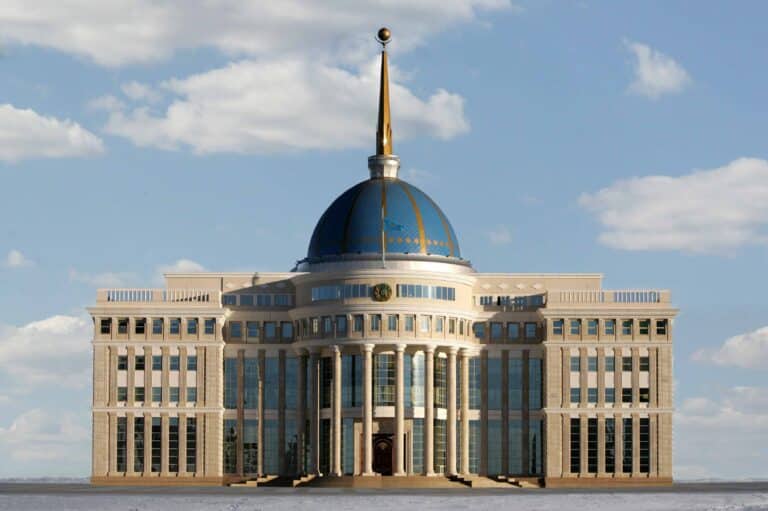
The international rating agency Fitch has affirmed Kazakhstan’s sovereign credit rating at ‘BBB’ with a stable outlook.
«Fitch Ratings has affirmed Kazakhstan’s Long-Term Foreign-Currency Issuer Default Rating (IDR) at ‘BBB’ with a Stable Outlook,» the agency said in a statement.
The rating reflects strong fiscal and external balance sheets that have proven resilient to external shocks, and financing flexibility underpinned by accumulated oil revenue savings. Set against these strengths are its very high dependence on commodities, high inflation that partly reflects a less developed macroeconomic policy framework relative to ‘BBB’ peers, and weak governance indicators, Fitch said.
Crude and oil condensates contribute to 42% of fiscal revenues and 55% of exports, and the sector accounts for 17% of the GDP, exposing the economy to external shocks. The expansion of the Tengiz oil field (delayed until at least the end of 2024) will add 12 million tons to annual production (a 44% capacity increase). Economic diversification efforts are underway but will take time, given challenges associated with the business environment, and skills shortages, according to the agency’s analysts.
Fitch has also recalled geopolitical risks which play a huge role given that up to 80% of Kazakh crude is exported through the Caspian Pipeline Consortium (CPC) pipeline that crosses through Russia, posing a key vulnerability. Following a series of disruptions to operations in 2022, the CPC did not suffer notable disruption in 2023, as bilateral relations appear to have stabilized and the agency doesn’t consider heightened disruption as its base case.
While official efforts to diversify export routes – notably by transporting crude via the Caspian Sea – are underway, they will not constitute a significant volume of total exports for some time. Fitch considers Kazakhstan to be at relatively low risk of secondary Western sanctions, notwithstanding its close economic and trade ties with Russia.
The fiscal stance has loosened in 2023, with marked increases in investment spending (notably on transport and energy infrastructure) and social spending. The consolidated budget deficit was 2.4% of the GDP in the first half of 2023 (compared to a surplus of 3.6% in the first half of 2022). Fitch expects the general government budget deficit to expand to 3% of the GDP in 2023 (2022: 2.1%; current ‘BBB’ median: 3.2%), before moderating to 2.3% in 2024 and 1.8% in 2025 due to slower spending growth and revenue from higher oil production.
In Fitch’s view, government spending growth will moderate in 2024-25 as the implementation of new fiscal rules begins. These are designed to restrict expenditure growth and limit guaranteed and targeted transfers from the National Fund for the Republic of Kazakhstan (NFRK) to the budget, with the aim of supporting the government’s stated objective to grow NFRK assets to $100 billion by 2030. However, the fiscal rules are untested, and commitment to these rules may be challenged in a low oil-price environment or when social policy objectives require an increase in budget spending.
General government debt stood at 24.1% of the GDP as of the second half of 2023, less than half the current ‘BBB’ median of 55%, and constitutes a credit strength. We expect authorities to increasingly rely on debt financing as withdrawals from the NFRK become more constrained due to fiscal rules. Fitch forecasts government debt/GDP to stabilize at 26.5% in 2024-2025, remaining well below peer levels.
Owing to lower oil and metal prices and a very large increase in imports (driven in part by fiscal loosening and linked to strong investment growth), the current account widened to a deficit of 4.6% of GDP in the first six months of 2023. Fitch expects the current account deficit to reach 3.5% in 2023, before moderating to 2.9% in 2024 and 1.8% in 2025 (2022: surplus of 3.1%; current ‘BBB’ median: 1.4% deficit) as oil production ramps up. Further delays to Tengiz expansion and a sharper-than-expected fall in oil prices pose the most notable downside risks to the agency’s forecasts.
Foreign currency reserves, including liquid NFRK assets, increased by 17% in January-October 2023 to $90.3 billion (33% of the GDP), driven in part by financial inflows as well as an increase in gold prices. The external liquidity position is over 200% of short-term external liabilities.
Inflation lowered to 10.8% in October after peaking at 21.3% in February, largely reflecting base effects, some modest easing in food inflation and tighter monetary policy. Fitch expects inflation to average 14.8% in 2023 and lessen to 9.5% in 2024 and 8% in 2025, above the central bank’s medium-term inflation target of 5%. There are moderate upside risks to our forecasts from second-round impacts of higher retail fuel prices, given subsidies for these products were reduced in July, and additional subsidy cuts are planned in the coming years. Household inflation expectations have not trended down, despite inflation starting to fall.
The National Bank of Kazakhstan cut rates by 25bp to 16.5% in August, and a further 50bp to 16% in October. Deposit dollarization levels have declined (30% by the end of Q3 of 2023, down from 36.7% in 2022) and the pace of credit growth moderated from 2022 levels, potentially indicating the impact of higher rates so far this year. A scheduled termination of the subsidized lending programs by the NBK in 2024 would signal stronger monetary policy independence if it proceeds.
The economy grew by 4.9% year-on-year in January-October 2023, and Fitch expects full-year growth of 4.8%. Solid investment growth, along with an increase in personal consumption (as real incomes rise) will raise growth levels to 5.1% in 2024, and an expansion of Tengiz operations will boost growth to 5.4% in 2025, well above potential.













